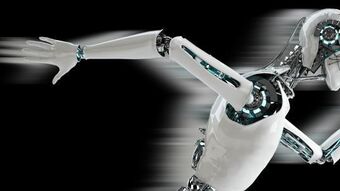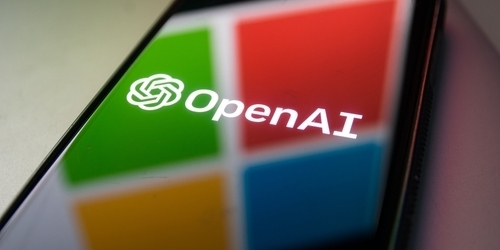Nigel Cameron: When Brains and Robots get together, what next?
Technology, Robotics, and AI
If you saw the terrific film Hidden Figures – about the brilliant women mathematicians who made possible NASA’s rockets to the Moon – you’ll know that the word “computer” didn’t originally mean a machine. These women were called “computers” because they did all the “computing.” But that’s not where the word originally came from.
Calum McKellar begins his brilliant book Cyborg Mind by pointing out that it was first coined by a French polymath in the 17th century. He came up with a plan for a super-smart calculating machine – but he used the word “computer” to describe the person who would operate it, not the super-abacus. Plainly, Calum points out, Claude Perrault assumed that the person using the machine would be smarter.
Time, of course, has moved on. “A half-decent office computer now performs more than a billion calculations every second,” he notes. We’ve got used to that! Yet the machine and the person have remained separate. “On the desk sits a machine – an object. At the desk sits a person – an agent.”
Yet what comes next? Machines aren’t just getting smarter, they are slowly being connected directly (rather than through your fingers) to the human brain. What they experts call the “brain-machine interface.” (You can already use it to play video games online.) As these connections get better, as they surely will, what are the implications for the plugged-together “machine-person”? Or, as they are called in science fiction, for cyborgs? (An abbreviation of “cybernetic organisms.”)
Cyborg Mind, as well as sketching in very readable fashion the latest developments in information technology and artificial intelligence – as well as in brain science itself – sets out the agenda for what he calls “cyberneuroethics.” The ethics of the coming mashup of the human brain and tomorrow’s computers.
So we have sections on such mind-blowing topics as “online humans,” “escaping reality,” “changing mood,” “changing personality,” “changing identity,” and – wait for it – “uploading a mind.”
You’ll find especially gripping his discussion of “new cybercrimes.” We all know about criminals hacking into bank databases, and spies hacking into security computers. What about people hacking into our brains – since our brains are connected to the Internet? The Japanese cartoon series Ghost in the Shell(the latest part of which is now available on Netflix) is based on a world like that.
As usual, the sci-fi writers are there ahead of the rest of us. As I read Cyborg Mind I was reminded of two favourite films that have serious messages. One is Minority Report, Steven Spielberg’s 2002 drama about a world in which specially gifted people can predict crimes before they happen - “pre-crime,” it’s called. The other is funnier but no less serious in its implications: Eternal Sunshine of the Spotless Mind (2004), with Jim Carrey and Kate Winslet. It’s a world in which you can have your uncomfortable memories erased by a machine.
Cyborg Mind is a brilliant primer as we start to think through what all this is going to mean. It discusses big questions, but makes them as accessible as possible. Are you a teacher or a pastor? Do you lead a book group? Or re you just trying to make sense of what lies up ahead? Cyborg Mind is for you.
What’s more, while the hardback is available – on Amazon or through your local bookshop – for a mere 99 quid, you can print it out for nothing from the publisher’s website.Or, if you prefer, you can get the Kindle version - for free!
Three cheers for Calum McKellar and the Scottish Council for Human Bioethics.
By Nigel Cameron.





Share story
Nigel Cameron: When Brains and Robots get together, what next?